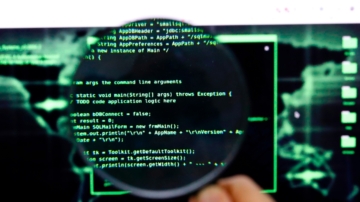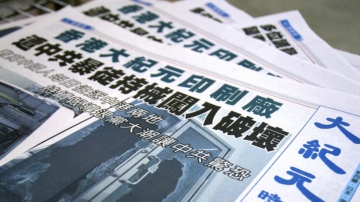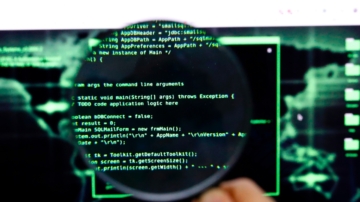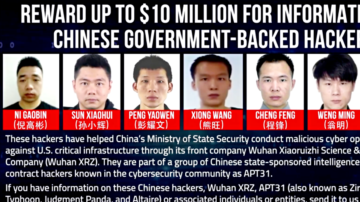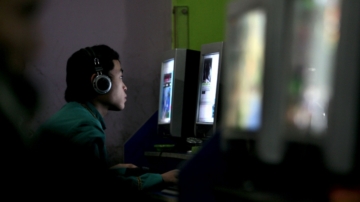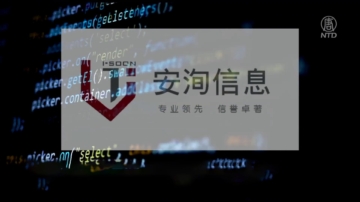【新唐人2013年09月03日訊】近期,大陸警方對網絡言論展開了新一輪的打壓,並將打壓面完全擴大到數億普通網民,一時間,網絡上因言獲罪的消息不斷,網民們所謂的「罪言」和被警方加諸的「罪名」更是也是五花八門。而評論指出,當局對網絡言論打壓面的持續擴大,雖然短期內達到了令網絡集體噤聲的目地的,但也激起了除激進派、溫和派、自由中立派人士以外,數量最龐大的大陸普通網民們的反抗意志。
近來 中共當局對網絡言論的打壓,與往年只打擊激進的反對派情況不同,今年在網路紅人「秦火火」被拘之前,中共當局抓捕了一大批溫和派的政治異見人士和人權活動人士,如﹕廣州知名維權人士郭飛雄、張林、法學家許志永、獨立製片人杜斌等等,一大批溫和派的政治異見人士和人權活動人士。而自「秦火火」之後,受被打壓的對像則開始轉向網絡爆料人、大V名人、博客作家,甚至媒體記者等自由派人士。
北京社會活動家胡佳:「開始他們針對網絡上的言論主要採取的方式,是刪貼、封號、或者是由警察、國保來找喝茶,今年它們最開始壓力沒有放在這上,他們主要針對公民的街頭化、組織化的行動。當那波行動活躍者身陷囹圄之後,他們回過頭來開始整肅互聯網上的言論。想讓互聯網的冬天提前到來,就是這個冰凍期。」
此時,一些政治嗅覺靈敏的觀察人士預言,當局的打壓範圍最終將會擴大到普通網民,成為二次文革。很快,這一預言成為了現實。短短一週之內,全國因言獲罪的普通網民達到了近千人,網民們只要稍有不慎,就可能被當局以「造謠」、「傳謠」、「誹謗」、「尋釁滋事」等各類罪名拘捕,對此,媒體人郭光東在微博上暗諷,打擊網絡言論「總有一款適合你」。
據大陸媒體8月28號報導,河北省清河縣警方發現百度貼吧「清河吧」一位網民發佈消息詢問:「聽說婁莊發生命案了,有誰知道真相嗎?」,在這一消息被點擊1000多次以後,被當地警方發現,並迅速將發帖的20歲女網民,以擾亂社會公共安全秩序的罪名行政拘留,招到了引起很多網民的非議。
福建網民倪先生:「我覺得警方的做法有點過份了吧,也許這個網民的問這個問題她就是出於一種好奇,又或者是關心事發地有她的親朋或者好友的安全,完全不牽扯造謠一說吧,更談不上擾亂治安。要是警方真的擔心有不良影響,其實他完全可以在網上直接回答她呀,又或者在官方澄清事實啊,為甚麼要把她抓起來呢?簡直是在濫用職權嘛!」
類似事件不止上述一例,8月26號,安徽碭山發生一起交通事故,造成了10人死亡,5人受傷。網民於和玉在網上發消息說有事故造成16人死亡,也被警方以散佈謠言為由行政拘留。對此,民眾認為當局的做法既不合理,又不合法。
南京東南大學法學教授張讚寧:「要求一個平民百姓一點誤差沒有,這是很不切實際的,你官方的報導還有誤差呢,你經常有甚麼礦難事故、動車事故,開始報導死了90多人,後來又報導道100多人,那你官方媒體報導難道也是謠言嗎?,所以有誤差跟謠言是完全本質上不同的兩碼事。」
隨著網路言論空間被壓縮極限,對當局不滿的網民也越來越多,黨民矛盾被激化到了一個新的高峰。
大陸網民姚誠:「他們的新聞沒有自由,就不讓我們說話,所以就弄了一些罪名,甚麼造謠啊、甚麼誹謗啊,反正對他們不順眼的就抓,但是它這個抓的沒有道理、也不服眾,所以大家也沒有被這個嚇倒,我們還繼續在該說甚麼話說甚麼話。」
有網民直言,民不畏死,奈何以死懼之?文字冤獄只會讓更多嚮往自由的人,積累從量變到質變的反抗意志,大陸網友奉勸中共當局不要再與民為敵,否則必自掘墳墓。
採訪編輯/張天宇 後製/李月
CCP Cracks Down On Netizens, Causing More Objections
Mainland China's police have launched a new round
of suppression toward online free speech,
and has expanded it to the hundreds of millions
of China's netizens.
Many netizens have been punished for their online statements.
There are many so-called "illegal words" and "illegal names."
Commentators say that although the expanded suppression
by the authorities may temporarily silence the crowd,
it will lead to objections from the majority of the netizens
in addition to the radical, the moderate, and the liberal.
Recent internet suppression by CCP authorities is different
from its past focus on only those who radically oppose the party.
Before the arrest of Qin Huohuo, a well-known netizen,
the CCP arrested a large number of moderate
political dissidents and human rights activists, including:
renowned Guangzhou human rights activist Guo Feixiong,
well-known democracy activist Zhang Lin,
legal professional Xu Zhiyong, and journalist Du Bin.
Since the arrest of Qin Huohuo, the target of the suppression
has expanded to include online news sources,
blog writers, even reporters and other liberals.
Beijing activist Hu Jia: "Initially their main approach for
internet statements was removing the statements,
denying writers access, or having the police or
public security "invite them to tea."
Since the start of this year, they hadn't continued in this way.
They've mainly targeted organizers of citizen movements.
But after this wave, they've come back to discipline netizens.
They have started the ice age of the internet."
Some observers of sensitive political issues predicted that
the authorities' suppression will include ordinary netizens,
and will eventually turn into the second Cultural Revolution.
This prediction has become a reality.
Within just a week, nearly a thousand ordinary netizens
were arrested for online statements.
The slightest careless comments might lead to a netizen being
detained for "fabricating rumors," "spreading rumors," "slandering" and "causing trouble."
Media professional Guo Dongguang said on his microblog,
"there is always an online crime to fit you."
According an August 28 report by Chinese media,
police in Qinghe County, Hebei province found an
online post which read,"I heard there was a murder case
at Lou Zhuang. Who knows what happened?"
When it had 1,000 views, police quickly detained the female
20-year-old netizen for "Disturbing Social Safety and Order."
This has incited many netizens to protest.
Fujian Netizen Mr. Ni: "I think the police overreacted.
The netizen might just be curious, or
concerned about her friends and family.
It has nothing to do with fabricating rumors,
nor disturbing social orders.
If the police are really concerned over this,
they could simply answer her question.
Why arrest her? This is abuse of power!"
There are many more similar events.
On August 26, an accident happened in Anhui,
resulting in 10 deaths and five injuries.
Netizen Yu Heyu posted the news online saying
"16 people were killed."
She was also detained by the police for "spreading rumors."
People think the authorities follow neither the law nor reason.
Zhang Zanning, law professor at China's Southeast University:
"It is unrealistic to require an ordinary citizen's report to be
accurate without any error, but how about the official reports?
The casualty number in initial reports on mine accidents,
or train accidents also varied among state-owned media reports.
Aren't the official media reports making rumors?
Rumors and errors in reports are two entirely different things."
With the suppressing of internet freedom, more and more
netizens are dissatisfied with the Chinese authorities.
The intensity of conflict between CCP and the people
has reached a new peak.
Chinese netizen Yao Cheng: "There is no freedom of speech.
We are not allowed to speak.
They made up all these crimes such as fabrication, slander, etc.
The bottom line is that they arrest whoever they do not like.
But these arrests are not reasonable, so nobody accepts it
or is intimidated. We'll continue to say what we should."
Some netizens say scaring people with death is of little avail.
Suppressing free speech only makes more people
long for freedom and adds fuel to the flames of protest.
Chinese netizens advise the authorities not to make the people
out to be it's enemy, otherwise it's digging its own tomb.
近來 中共當局對網絡言論的打壓,與往年只打擊激進的反對派情況不同,今年在網路紅人「秦火火」被拘之前,中共當局抓捕了一大批溫和派的政治異見人士和人權活動人士,如﹕廣州知名維權人士郭飛雄、張林、法學家許志永、獨立製片人杜斌等等,一大批溫和派的政治異見人士和人權活動人士。而自「秦火火」之後,受被打壓的對像則開始轉向網絡爆料人、大V名人、博客作家,甚至媒體記者等自由派人士。
北京社會活動家胡佳:「開始他們針對網絡上的言論主要採取的方式,是刪貼、封號、或者是由警察、國保來找喝茶,今年它們最開始壓力沒有放在這上,他們主要針對公民的街頭化、組織化的行動。當那波行動活躍者身陷囹圄之後,他們回過頭來開始整肅互聯網上的言論。想讓互聯網的冬天提前到來,就是這個冰凍期。」
此時,一些政治嗅覺靈敏的觀察人士預言,當局的打壓範圍最終將會擴大到普通網民,成為二次文革。很快,這一預言成為了現實。短短一週之內,全國因言獲罪的普通網民達到了近千人,網民們只要稍有不慎,就可能被當局以「造謠」、「傳謠」、「誹謗」、「尋釁滋事」等各類罪名拘捕,對此,媒體人郭光東在微博上暗諷,打擊網絡言論「總有一款適合你」。
據大陸媒體8月28號報導,河北省清河縣警方發現百度貼吧「清河吧」一位網民發佈消息詢問:「聽說婁莊發生命案了,有誰知道真相嗎?」,在這一消息被點擊1000多次以後,被當地警方發現,並迅速將發帖的20歲女網民,以擾亂社會公共安全秩序的罪名行政拘留,招到了引起很多網民的非議。
福建網民倪先生:「我覺得警方的做法有點過份了吧,也許這個網民的問這個問題她就是出於一種好奇,又或者是關心事發地有她的親朋或者好友的安全,完全不牽扯造謠一說吧,更談不上擾亂治安。要是警方真的擔心有不良影響,其實他完全可以在網上直接回答她呀,又或者在官方澄清事實啊,為甚麼要把她抓起來呢?簡直是在濫用職權嘛!」
類似事件不止上述一例,8月26號,安徽碭山發生一起交通事故,造成了10人死亡,5人受傷。網民於和玉在網上發消息說有事故造成16人死亡,也被警方以散佈謠言為由行政拘留。對此,民眾認為當局的做法既不合理,又不合法。
南京東南大學法學教授張讚寧:「要求一個平民百姓一點誤差沒有,這是很不切實際的,你官方的報導還有誤差呢,你經常有甚麼礦難事故、動車事故,開始報導死了90多人,後來又報導道100多人,那你官方媒體報導難道也是謠言嗎?,所以有誤差跟謠言是完全本質上不同的兩碼事。」
隨著網路言論空間被壓縮極限,對當局不滿的網民也越來越多,黨民矛盾被激化到了一個新的高峰。
大陸網民姚誠:「他們的新聞沒有自由,就不讓我們說話,所以就弄了一些罪名,甚麼造謠啊、甚麼誹謗啊,反正對他們不順眼的就抓,但是它這個抓的沒有道理、也不服眾,所以大家也沒有被這個嚇倒,我們還繼續在該說甚麼話說甚麼話。」
有網民直言,民不畏死,奈何以死懼之?文字冤獄只會讓更多嚮往自由的人,積累從量變到質變的反抗意志,大陸網友奉勸中共當局不要再與民為敵,否則必自掘墳墓。
採訪編輯/張天宇 後製/李月
CCP Cracks Down On Netizens, Causing More Objections
Mainland China's police have launched a new round
of suppression toward online free speech,
and has expanded it to the hundreds of millions
of China's netizens.
Many netizens have been punished for their online statements.
There are many so-called "illegal words" and "illegal names."
Commentators say that although the expanded suppression
by the authorities may temporarily silence the crowd,
it will lead to objections from the majority of the netizens
in addition to the radical, the moderate, and the liberal.
Recent internet suppression by CCP authorities is different
from its past focus on only those who radically oppose the party.
Before the arrest of Qin Huohuo, a well-known netizen,
the CCP arrested a large number of moderate
political dissidents and human rights activists, including:
renowned Guangzhou human rights activist Guo Feixiong,
well-known democracy activist Zhang Lin,
legal professional Xu Zhiyong, and journalist Du Bin.
Since the arrest of Qin Huohuo, the target of the suppression
has expanded to include online news sources,
blog writers, even reporters and other liberals.
Beijing activist Hu Jia: "Initially their main approach for
internet statements was removing the statements,
denying writers access, or having the police or
public security "invite them to tea."
Since the start of this year, they hadn't continued in this way.
They've mainly targeted organizers of citizen movements.
But after this wave, they've come back to discipline netizens.
They have started the ice age of the internet."
Some observers of sensitive political issues predicted that
the authorities' suppression will include ordinary netizens,
and will eventually turn into the second Cultural Revolution.
This prediction has become a reality.
Within just a week, nearly a thousand ordinary netizens
were arrested for online statements.
The slightest careless comments might lead to a netizen being
detained for "fabricating rumors," "spreading rumors," "slandering" and "causing trouble."
Media professional Guo Dongguang said on his microblog,
"there is always an online crime to fit you."
According an August 28 report by Chinese media,
police in Qinghe County, Hebei province found an
online post which read,"I heard there was a murder case
at Lou Zhuang. Who knows what happened?"
When it had 1,000 views, police quickly detained the female
20-year-old netizen for "Disturbing Social Safety and Order."
This has incited many netizens to protest.
Fujian Netizen Mr. Ni: "I think the police overreacted.
The netizen might just be curious, or
concerned about her friends and family.
It has nothing to do with fabricating rumors,
nor disturbing social orders.
If the police are really concerned over this,
they could simply answer her question.
Why arrest her? This is abuse of power!"
There are many more similar events.
On August 26, an accident happened in Anhui,
resulting in 10 deaths and five injuries.
Netizen Yu Heyu posted the news online saying
"16 people were killed."
She was also detained by the police for "spreading rumors."
People think the authorities follow neither the law nor reason.
Zhang Zanning, law professor at China's Southeast University:
"It is unrealistic to require an ordinary citizen's report to be
accurate without any error, but how about the official reports?
The casualty number in initial reports on mine accidents,
or train accidents also varied among state-owned media reports.
Aren't the official media reports making rumors?
Rumors and errors in reports are two entirely different things."
With the suppressing of internet freedom, more and more
netizens are dissatisfied with the Chinese authorities.
The intensity of conflict between CCP and the people
has reached a new peak.
Chinese netizen Yao Cheng: "There is no freedom of speech.
We are not allowed to speak.
They made up all these crimes such as fabrication, slander, etc.
The bottom line is that they arrest whoever they do not like.
But these arrests are not reasonable, so nobody accepts it
or is intimidated. We'll continue to say what we should."
Some netizens say scaring people with death is of little avail.
Suppressing free speech only makes more people
long for freedom and adds fuel to the flames of protest.
Chinese netizens advise the authorities not to make the people
out to be it's enemy, otherwise it's digging its own tomb.


